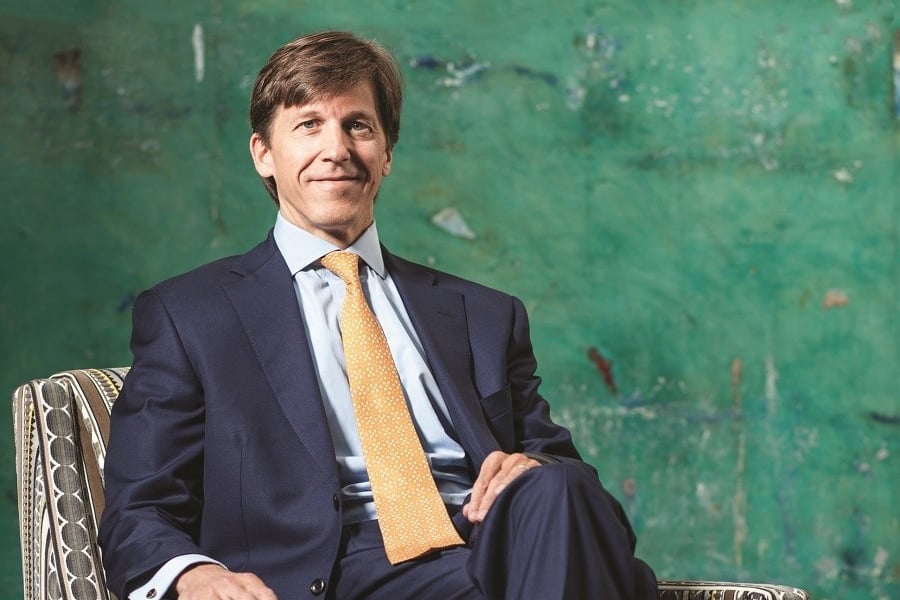It's been a tough first month on the job for Dan Arnold as the CEO of LPL Financial.
First, two huge groups of brokers controlling billions of dollars in client assets, including star adviser
Ron Carson, in January left the firm. Next, Secretary of the Commonwealth of Massachusetts William Galvin, long a thorn in LPL's side, whacked the firm last month with an order to pay up to
$3.7 million in restitution and fines to investors as the result of an investigation into sales of unsuitable variable annuities by a former top-producing rep based in Boston.
LPL Financial Holdings Inc. releases its fourth quarter earnings on Thursday afternoon after the market closes. Mr. Arnold will be in the spotlight leading his first conference call with analysts and investors.
“He's going to be in damage control mode,” said Jonathan Henschen, an industry recruiter. “He needs to shore up the better quality groups to make sure they stick around, and the firm needs to get compliance in line. It's been problematic since they went public in 2010.”
LPL has been plagued by compliance problems over the past few years and paid $70 million in fines and restitution in 2014 and 2015 alone. The company has assured advisers and investors that it had resolved the most significant historical matters.
“Dan Arnold is walking into a compliance bubble of continued problems and a flight bubble of high quality, large groups leaving. That could affect the firm's recruiting this year,” Mr. Henschen said. “And this at a time when LPL was starting to gain traffic on recruiting.”
“We have made significant progress in lowering our risk profile through investments in people, systems and processes,” said company spokesman Jeffrey Mochal in an email. “We remain confident in our business and the capabilities and services we provide. We continue to win in the marketplace and are in the midst of one of our most successful recruiting years in LPL's history.”
No stranger to LPL, Mr. Arnold became CEO at the start of the year, replacing long-time chief Mark Casady, who retired and will soon be replaced as chairman. When LPL was in its rapid growth mode a decade ago, it bought a broker-dealer that caters to advisers in banks, UVEST Financial Services. A senior executive at UVEST, Mr. Arnold joined LPL as a managing director in charge of strategy. He became chief financial officer in 2012 and president in 2015.
Brokers, even stars like Mr. Carson, come and go, and LPL has recently reported strong interest from potential recruits.
But recent departures have been significant. In January, Resources Investment Advisors Inc., a hybrid RIA with roughly $4.1 billion in assets that focuses on corporate retirement plans, and LPL
confirmed they were parting ways. Mr. Carson moved his $8 billion firm, Carson Wealth Management, to the brokerage platform of LPL rival Cetera Financial Group.
Carson Wealth had $1.6 billion in brokerage account assets and another $1 billion in advisory assets with LPL and the remainder at other custodians. In an unusual move, Mr. Carson, one of the firm's highest profile and longest-tenured advisers, critiqued LPL as he was walking out the door. “The things critical to our future success were not available at LPL,” Mr. Carson
told InvestmentNews last month.
Overall, the company is retaining advisers, with a retention rate for producers of 95% to 97%, according to Mr. Mochal. Days before Mr. Casady announced in December he was retiring, LPL said that Integrated Financial Partners, with $4 billion in client assets, had joined the firm. And in January, the company announced that First Interstate Wealth Management, with $810 million, had joined its advisory and brokerage platform.
With over 14,000 advisers and more than a half trillion dollars in client assets, LPL Financial is the undisputed independent broker-dealer industry heavyweight. Mr. Arnold will be closely watched for how he manages the company over its recent hurdles. The fresh regulatory fine from Mr. Galvin's office and advisers of Mr. Carson's stature departing only add to the pressures sitting on Mr. Arnold's shoulders.
How will he manage the company as the brokerage industry continues its transformation from a business that relied on advisers to generate commission dollars from selling products to a hybrid model in which advisers generate steady fees from client assets, one analyst asks.
“Should LPL turn itself into a Fidelity, not on the fund side, but on the Fidelity Institutional arm of the business, and push RIA custody and services?” asked Alois Pirker, research director for Aite Group's wealth management practice. “Should it tell advisers to bring assets to the firm, even if the come from a robo-adviser? What does LPL want to be?”
(More: Despite new review of DOL fiduciary rule, firms are sticking with higher standard of care)







